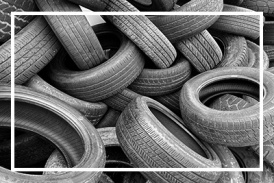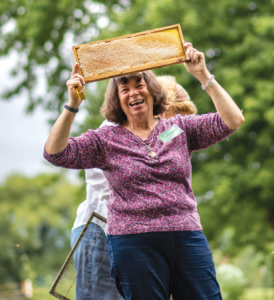Sourwood Honey from Clarkesville, Georgia Awarded Best Tasting Honey in the World
Second time winner of Best Tasting Honey in the World, sponsored by the Center for Honeybee Research in Asheville, NC.
This is the second time that Virginia Webb has won the title of “Best Tasting Honey in the World” at the Center for Honeybee Research. She has also won four gold medals for her Sourwood honey at the Apimondia World Honey Show, which is held every two years.
The United States boasts a wide variety of artisanal honeys, ranging from well-known varieties like clover honey to more unique ones, such as tupelo, black sage, fireweed, orange blossom, gallberry, basswood, and sourwood. The flavor of honey is primarily determined by the flowers that the bees visit.
The sourwood tree (Oxydendrum arboreum), is native to North America, which is also called the Lily of the Valley Tree or the Appalachian Lily tree. It grows to be 40 to 60 feet tall with a one-foot diameter. It is found in the mountains of northern Georgia, the Shenandoah Valley of Virginia, and Tennessee, Kentucky, and West Virginia. Sourwood honey ranges in color from extra light to light amber. It is extremely aromatic and has a rich, distinctive honey flavor. It commands a premium price in local markets.
Mrs. Webb is the only person in the United States with three Master Beekeeping certifications. A third-generation beekeeper, she has been keeping bees for over 60 years, ever since her father gave her a hive in 1963. While growing up in East Tennessee, she was the first winner of the Tennessee 4-H Beekeeping project. For many decades, teaching others about beekeeping has been Virginia’s passion.
Her honey has been served at The White House in Washington, D.C., at the Georgia Governor’s Mansion, at the United Nations in New York City, and at Le Cordon Bleu, among other esteemed places.
She met her late husband, Carl Webb, through beekeeping and together they started a commercial beekeeping operation in Clarkesville, Georgia, in 1998.
Beekeeping can be found in almost every area of the United States. It ranges from urban areas, such as downtown Atlanta, to suburban areas and the rich farmlands of Georgia.
The U.S. Department of Agriculture reports that honeybees pollinate over $15 billion worth of crops in the United States each year. Over 80% of flowering plants require pollinators for reproduction. One out of every three bites of food we eat, including fruits, vegetables, chocolate, coffee, and nuts, is made possible by beneficial pollinators.
The Center for Honeybee Research cares about all pollinators, not just honeybees. They educate the public about the importance of pollinator gardens and using fewer chemicals in yards to provide habitats for insects. While many insects, birds, and bats provide pollination services, honeybees have become crucial to the agricultural industry. To produce one pound of honey, bees must visit over two million flowers. That is the power of the honeybee!
To find out more information on the Center for Honeybee Research go to: https://centerforhoneybeeresearch.org
Virginia Webb
MtnHoney
+1 7069685670
email us here
Legal Disclaimer:
EIN Presswire provides this news content "as is" without warranty of any kind. We do not accept any responsibility or liability for the accuracy, content, images, videos, licenses, completeness, legality, or reliability of the information contained in this article. If you have any complaints or copyright issues related to this article, kindly contact the author above.
Data-Driven Insights into the Global Hydrogen Electrolyzers Market: Strategic Outlook for Decision Makers
Top Regional Growth and Emerging Product Trends in the Habit Tracking App Market (2025–2033)
TIGHITCO OVERHAUL SUPPORT SERVICES LAUNCHES MOBILE NDT CAPABILITIES
Kalendarium
Więcej ważnych informacji
 Jedynka Newserii
Jedynka Newserii

 Jedynka Newserii
Jedynka Newserii

Ochrona środowiska

Z powodu braku przejrzystego prawa branża recyklingu odkłada inwestycje. Firmy apelują o szybkie wdrożenie przepisów
Branża recyklingu stoi przed wyzwaniami związanymi z wdrożeniem systemu kaucyjnego, systemu rozszerzonej odpowiedzialności producenta i rozporządzenia PPWR. Brakuje jednak odpowiednich przepisów dostosowujących polskie prawo i realia do unijnych regulacji. W efekcie utrzymującej się niepewności prawnej między 2018 a 2023 rokiem co trzeci zakład recyklingu zamknął działalność. Wiele firm odkłada inwestycje, czekając na uregulowanie rynku. Podobna niepewność dotyczy też producentów opakowań.
Transport
Testowanie pojazdów zautomatyzowanych wkrótce będzie możliwe. To odpowiedź na postulaty przedsiębiorców

Kończą się prace nad przepisami, które mają usprawnić prace badawcze nad pojazdami zautomatyzowanymi. Ma to być odpowiedź na postulaty przedsiębiorców, którzy wskazywali na potrzebę pilnej zmiany przepisów w zakresie testowania pojazdów autonomicznych. Obecne regulacje nie sprzyjają postępowi technologicznemu i rozwoju autonomiczności pojazdów, o czym świadczy bardzo niewielka liczba wydanych uprawnień do ich prowadzenia.
Firma
Przedsiębiorcom coraz bardziej doskwiera niestabilność i skomplikowanie przepisów podatkowych. Problemem są też niejasne ich interpretacje

Polscy przedsiębiorcy często negatywnie oceniają jakość przepisów podatkowych – wynika z raportu „Przedsiębiorcy pod lupą fiskusa 2025” przygotowanego przez firmę doradztwa podatkowego MDDP we współpracy z Konfederacją Lewiatan. Ich niepokój budzą niejednolite interpretacje przepisów i niepewność prawa podatkowego, które cały czas jest modyfikowane. Wśród kluczowych zmian w obszarze podatków, które będą dotyczyć praktycznie wszystkich przedsiębiorców, są m.in. wprowadzenie Krajowego Systemu e-Faktur czy zmiany w podatku od nieruchomości.
Partner serwisu
Szkolenia

Akademia Newserii
Akademia Newserii to projekt, w ramach którego najlepsi polscy dziennikarze biznesowi, giełdowi oraz lifestylowi, a także szkoleniowcy z wieloletnim doświadczeniem dzielą się swoją wiedzą nt. pracy z mediami.



![Nowe opłaty za emisję CO2 mogą spowodować wzrost kosztów wielu małych i średnich firm. Eksperci apelują o mądre instrumenty wsparcia [DEPESZA]](https://www.newseria.pl/files/1097841585/664-ciezarowki-postoj-foto2,w_85,_small.jpg)




.gif)

 |
| |
| |
|